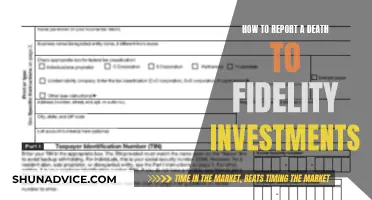
Investing in equity funds can be a great way to diversify your portfolio and generate higher returns. Equity funds are a type of mutual fund that invests in the stock market, with stocks being selected by a team of professionals to deliver maximum returns while managing risk. These funds can be volatile in the short term but have the potential to generate substantial returns over the long term. When investing in equity funds, it is important to assess your financial goals, risk tolerance, and investment horizon. This is particularly important for new investors who may be wary of investing in the capital market due to the need for more capital, time to monitor investments, or expertise in choosing the right shares.
There are different types of equity funds, including large-cap, mid-cap, and small-cap funds, which are categorised based on market capitalization. Additionally, equity funds can be active or passive, depending on whether the fund manager handpicks stocks or tracks a market index. When choosing an equity fund, it is essential to consider factors such as the fund's performance, expense ratio, diversification level, and portfolio turnover.
What You'll Learn

Understanding risk and returns
Equity funds are a type of mutual fund that invests in the stock market. They are managed by a team of professionals who aim to deliver maximum returns while keeping the risk under control. While equity funds can be volatile in the short term, they have the potential to generate substantial returns over the long term. Therefore, investors need to be patient and stay invested for at least five years to reap the benefits of equity funds.
When investing in equity funds, it is crucial to understand the relationship between risk and return. Risk, in financial terms, refers to the possibility of an investment's actual gains deviating from the expected outcome. It includes the chance of losing some or all of the original investment. In the context of equity funds, risk refers to the volatility of the stock market, which can lead to fluctuations in the value of the investment.
The degree of risk an investor is willing to take is directly related to the potential return. As the risk increases, investors generally expect higher returns to compensate for the additional risk undertaken. This relationship between risk and return is fundamental in finance. By investing in equity funds, investors have the opportunity to achieve higher returns compared to less risky investments.
To measure and quantify risk, investors use various tools and metrics such as standard deviation, beta, Value at Risk (VaR), and the Capital Asset Pricing Model (CAPM). Standard deviation is a commonly used metric that assesses the volatility of an investment's returns in comparison to its historical average. A high standard deviation indicates a greater degree of risk. Other metrics like beta and VaR also provide valuable insights into the risk associated with an investment.
Risk-adjusted return is a concept that considers both the profit generated by an investment and the level of risk undertaken to achieve that profit. It helps investors determine whether the risk taken is justified by the expected reward. There are several methods to evaluate risk-adjusted performance, including the Sharpe ratio, Treynor ratio, alpha, beta, and standard deviation. Each method provides a slightly different perspective on the relationship between risk and return.
By investing in equity funds, investors can benefit from the expertise of fund managers who actively manage the portfolio to maximise returns while controlling risk. Fund managers research and analyse various factors, such as company profitability, industry trends, and economic conditions, to make informed investment decisions. They continuously monitor the performance of the companies in their portfolio and adjust their holdings accordingly. This active management helps to mitigate risk and improve the potential for higher returns.
In summary, understanding risk and returns is crucial when investing in equity funds. While equity funds offer the potential for significant returns, they also carry a higher level of risk compared to other investments. By carefully assessing and managing risk, investors can make more informed decisions and improve their chances of achieving their financial goals.
Hedge Fund GPs: Benefits of Investing in Their Own Fund
You may want to see also

Tax benefits
Investing in equity funds can offer several tax benefits that can help maximise your returns and minimise your tax obligations. Here are some key tax advantages to consider:
Higher Dividends:
The removal of the Dividend Distribution Tax (DDT) means investors can now receive higher dividend rates without the previous tax deduction. This change allows investors to enhance their income through dividends.
Long-Term Capital Gains Exemption:
If you hold your equity fund investments for the long term, you can benefit from tax exemptions. In many countries, long-term capital gains (holding period exceeding one year) are either taxed at a lower rate or are exempt from taxation altogether. This provides an incentive for investors to remain invested for the long term.
Tax-Free Dividend Income:
Income generated through dividends from equity funds is typically tax-free. This means you are not obligated to pay taxes on this form of income. However, it's important to declare this income in the relevant tax forms.
Offset Short-Term Capital Gains:
Equity investments offer the benefit of offsetting short-term capital gains with short-term capital losses from other investments. This strategy can help reduce your overall tax liability and optimise your tax position.
Carry-Forward Option for Capital Losses:
If you incur capital losses from selling shares, you can carry forward these losses to offset future capital gains. This provision allows you to minimise taxes over multiple years and make the most of your investments.
Tax Savings with Equity Linked Saving Schemes (ELSS):
ELSS offers a dual advantage of tax savings and investment growth. Investments in ELSS qualify for tax deductions under certain sections of the tax code, allowing investors to reduce their taxable income. ELSS also has a lock-in period, which encourages long-term investing.
Rajiv Gandhi Equity Savings Scheme:
For newcomers to the stock market, the Rajiv Gandhi Equity Savings Scheme offers significant tax benefits. This scheme encourages individuals who are new to the dynamics of the stock market to invest with added tax advantages.
Mutual Funds: Investing in Renewable Energy's Future
You may want to see also

Long-term investment potential
Equity funds are a type of mutual fund that invests in the stock market. They are managed by a team of professionals who aim to deliver maximum returns while keeping risks in check. While equity funds can experience some volatility in the short term, they have the potential for substantial returns over the long term. This makes them suitable for investors with a long-term investment horizon, typically at least five years.
One of the key advantages of equity funds is the diversification they offer. Most funds hold 40 to 50 stocks in their portfolio, reducing the risk for investors. Equity funds are also managed by professionals who have expertise in markets and finance. These fund managers research and analyse various factors, such as company profitability, its ability to weather economic challenges, and the sector in which it operates. Based on this analysis, they make investment decisions such as which stocks to buy or sell and at what price.
Another benefit of equity funds is their potential for higher returns compared to other investment options. Historically, equity funds have delivered better returns over the long run. By investing in equity funds, investors can benefit from the growth of the stock market and potentially achieve returns that outpace inflation. This makes equity funds suitable for those with long-term capital growth goals.
Additionally, equity funds offer the advantage of professional management. For investors who may not have the time or expertise to research and analyse individual stocks, equity funds provide an opportunity to access the stock market. Investors can choose the best equity fund for their needs and leave the day-to-day management to the fund manager.
It is important to note that equity funds are subject to market risks, and there is no guarantee of returns. Investors should carefully consider their investment goals, time horizon, and risk tolerance before investing in equity funds. Consulting a financial advisor can help individuals make informed decisions about equity funds and ensure that their investments align with their financial objectives.
Value Index Funds: Smart, Long-Term Investment Strategy
You may want to see also

Choosing a fund manager
When choosing a fund manager, it is important to look beyond the numbers and take a qualitative approach. While it is important to consider a fund manager's track record, it is also crucial to understand their talent, investment philosophy, and platform. Here are some key factors to consider when selecting a fund manager:
- Specialisation and diversification: Look for fund managers with expertise in specific geographic regions, industries, or sectors. Diversify your portfolio by selecting managers with complementary specialisations and different styles, philosophies, volatility strategies, and tactical approaches.
- Consistency: Evaluate fund managers' performance in different market conditions. Be cautious if a manager consistently performs well in both up and down markets, as this may indicate a tendency to chase returns. Consistency in team dynamics and investment approach is also important.
- Reaction to challenging situations: Observe how fund managers react during difficult market conditions or economic downturns. Those who remain calm and continue to make strategic decisions or even take advantage of opportunities are likely to have a better ability to navigate challenging situations.
- Performance over a market cycle: Assess fund managers' performance over a complete market cycle, which is typically longer or shorter than four years. This will provide a more accurate indication of their investment skills and ability to generate returns.
- Qualitative factors: Consider factors such as team dynamics, turnover rates, and the retention of key personnel. A well-functioning team with low turnover rates and a stable investment approach can contribute to more consistent performance.
- Ability to adapt: Look for fund managers who demonstrate adaptability by changing their strategies over time. Good managers should be able to expand into new asset classes, industry sectors, and investment approaches as the market evolves.
- Performance in a poor market: Select a fund manager who has a track record of performing well during challenging market conditions. This indicates their ability to make prudent decisions and maintain a strong investment approach during downturns.
- Working culture and decision-making: Consider the working culture and decision-making processes within the fund management firm. Assess the level of collaboration and the involvement of junior analysts in the decision-making process. A diverse and inclusive working culture can contribute to more robust investment strategies.
- Long-term focus: Choose fund managers who demonstrate a forward-thinking approach and are focused on long-term performance rather than solely relying on past successes. Look for managers who continuously evaluate their competitive edge, including their platform and talent.
- Risk management: Understand the fund manager's approach to risk management. Assess how they measure and manage risk, including their strategies for mitigating losses and protecting investments. Ensure their risk tolerance aligns with your own investment goals and risk appetite.
By considering these factors and conducting thorough research, you can make a more informed decision when choosing a fund manager that aligns with your investment objectives and risk tolerance.
Crowdfunding: Investing for All, Without Barriers
You may want to see also

Diversification
Spread Your Investments
Combine Stocks and Bonds
A traditional approach to diversification is to combine stocks and bonds in your portfolio. Stocks offer higher potential returns but come with greater risk. On the other hand, bonds are generally more stable and provide fixed income. By allocating your investments between these two options, you can balance risk and return.
Invest in Index Funds
Index funds, such as the S&P 500 index fund, aim to replicate the performance of a specific market index. These funds offer instant diversification by investing in a broad range of companies within the index. They are also cost-effective, as they have low expense ratios due to their passive management nature.
Consider Real Estate
Including real estate in your portfolio can further enhance diversification. Historically, real estate has increased total returns while reducing volatility. An easy way to invest in real estate is through REITs, which own income-producing commercial properties.
Think Globally
Don't limit yourself to domestic investments. Explore international markets, especially emerging markets, to find attractive investment opportunities. Global diversification also helps protect your portfolio from negative events specific to a particular country or region.
Periodic Rebalancing
Over time, the performance of different investments in your portfolio will vary, causing shifts in your original asset allocation. Therefore, it's important to periodically rebalance your portfolio to maintain the desired level of diversification. This typically involves buying or selling certain investments to return your portfolio to its target weightings.
Be Mindful of Over-Diversification
While diversification is essential, it's possible to overdo it. Holding too many similar investments may not provide additional risk reduction benefits. For example, holding multiple small-cap stock funds may not offer significantly more diversification than holding just one. Focus on uncorrelated assets, or assets that move in opposite directions, to maximize the benefits of diversification.
Target Date Funds: Smart, Simple, and Stress-Free Investing
You may want to see also
Frequently asked questions
An equity fund is a mutual fund scheme that invests more than 60% of its assets in stocks. The remainder is invested in debt and other funds, but equity funds are highly concentrated in equities.
Equity funds are one of the riskiest types of mutual funds. They come with a high risk-return ratio.
These funds are most suitable for investors with a high-risk appetite, experienced investors, those looking for diversification, and those who want to stay invested in the fund for the long term.







